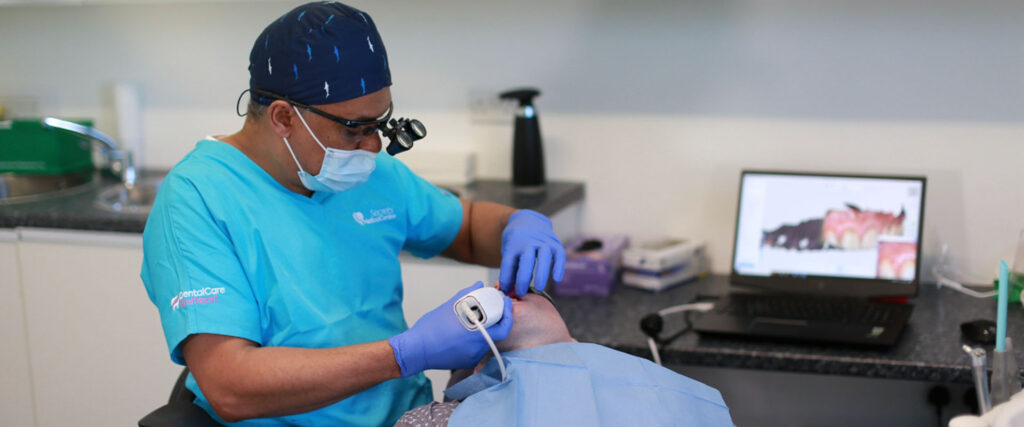It is estimated that around 36% of adults have a fear of the dentist and 12% of these suffer from extreme dental anxiety. So, if it’s something that affects you, you’re not alone.
But being a nervous patient shouldn’t get in the way of your dental health.
Dentists are experienced in treating nervous patients. What’s more, if you tell your dentist that you’re particularly nervous, they can prepare and make sure your visit is as easy-going and stress-free as possible – from the moment you step through the door to the time you leave.
Rest assured that it’s never too late to improve your oral health, even if you’ve avoided seeing the dentist for years due to your phobia.
Causes of dental anxiety, and how we can help
Dental anxiety can be caused by a range of things. Here are some common causes and how we can help you overcome them, to look after your dental health.
- Fear of pain: It’s easy to let fear of pain during dental treatment slip into your mind and put you off treatment. But your dentist can take every necessary step, including administering local anaesthetic, to relieve any potential pain. They can also offer you techniques to help you feel relaxed, such as sedation, which you can read more about in the section below.
- Previous experiences: While we understand how bad past experiences can make you wary of future appointments, it doesn’t have to affect your oral health. Our dentists are here to help you feel at ease. And they’re fully qualified and experienced, meaning you’re in the safest possible hands whenever you visit us.
- Phobia of needles: You should talk to your dentist beforehand if you don’t like needles. They can use numbing gels to minimise discomfort during the injection.
- Fear of loss of control: The thought of someone putting their hands in your mouth and altering your teeth while you can’t see what’s going on, can seem off-putting. Speak to your dentist about these worries, so they can suggest ways to help you feel comfortable. For example, your dentist could talk you through what they’re doing at each stage or come up with a signal if you want them to stop and take a break during treatment.
- Confidence in your smile: If you haven’t visited the dentist in a while, even years, due to your anxiety – you may feel self-conscious or embarrassed about your smile.
- The cost of treatment: Money worries can cause unwanted stress and might result in you ignoring dental pain or discomfort. Speak to your dentist about payment options, you’re not alone.
Techniques to ease dental anxiety
Need some extra help with easing your anxiety? We have a range of options to help make your dental visits calmer and more relaxing. These include:
- Dental sedation
- Relaxation techniques, including music, tours of the practice and introductions to staff
- Numbing the area of your mouth where treatment is needed
- Desensitisation to the noise of the drill (behaviour modification)
- Referral to a clinical psychologist for hypnotherapy treatment if necessary
- Local anaesthetic for most treatments. You might need a general anaesthetic for some treatments.
How to minimise your trips to the dentist
We recommend you visit your dentist for regular check-ups so they can check on your oral health. Your dentist will advise how often you need to go depending on your individual needs.
You can take steps to help limit visits to the dentist, by maintaining a dedicated oral health routine at home. This should include:
- Brushing your teeth twice a day, for two minutes each time, using fluoride toothpaste
- Flossing every day, as well as brushing, to dislodge any food particles stuck between your teeth – remember to floss before you brush
- Reducing the frequency you expose your teeth to sugary foods and drinks – for example don’t sip at a sugary drink throughout the day
Source- https://www.bupa.co.uk/dental/dental-care/services/nervous-patients
visit the above link to find out more
You may also like…

